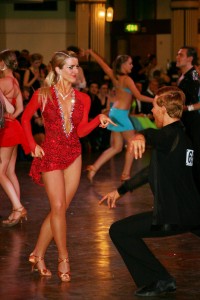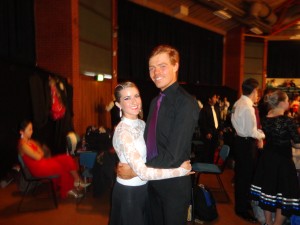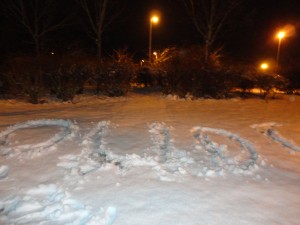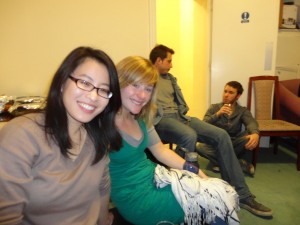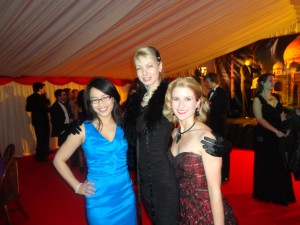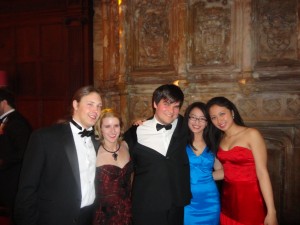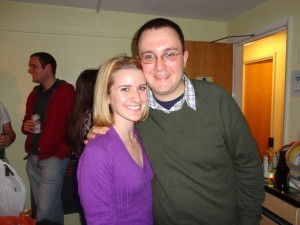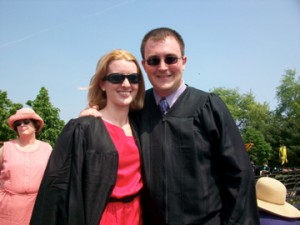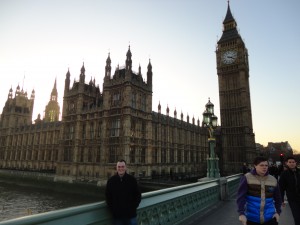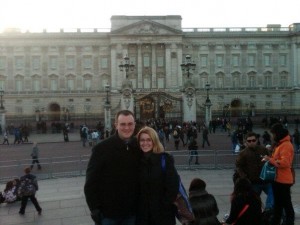Long time, no post. My lack of entries on this blog has been due to the immense amount of work that I’ve had to do in the past eight weeks…and the sad news is that I’m not finished yet. All undergraduates finished today, but my final term paper is due in two weeks. But, before I start on that topic, let’s do a brief update, shall we?
By the first week of November, I was already in intensive training mode – for both academics and ballroom. Every week, I was responsible for preparing for my three classes, which included about five books per class meeting. For my paleography classes, I’ve been expected to consult at least one manuscript a day to make sure that I’m learning how to engage with manuscripts properly. Yes, it is such a cool feeling to just waltz into the library and say, “Yes, I’m here to collect x manuscript.” The first time that I did it, I giggled incessantly because it was just such a cool feeling. Unfortunately, due to copyright issues, I cannot post any photos of the manuscripts that I’ve consulted. Let’s just say that they’re very, very old.
This entire first term has been an introduction/easing into graduate study. Some of us just graduated from college in May; others have been working for the past few years, so our course conveners have been trying to cover all of the bases. My first class was a general course on Medieval English literature that alternated between Old and Middle English every week; this course will continue next term as well. My second class was my Paleography class, and we met four times every week. Yes, it’s been a bit intense, but I can now identify when a manuscript was written based upon the handwriting. My last course was a comparative analysis between Old English and Old Norse conversion narratives, and I’m currently finishing up my final essay for this class. I’m using some of the skills that I learned in my Literary Theory class at Holy Cross by reading an Old Norse saga through a spatial theory lens. The paper is much cooler than it sounds, I promise!
So what’s the major difference between undergraduate and graduate? Well, firstly (and most importantly), I get to access manuscripts. Secondly, graduate school has been more about individual work. The reading lists are more of a guideline, and we’re expected to read more (…what…) than what’s on the syllabus. Although more is expected at this level, I’m having the time of my (academic) life. I adore all of my classes, and I am reminded on a daily basis of how lucky I am to be back at Oxford and studying what I love.
So now onto the more exciting part of my life – dancing. In the past eight weeks, I’ve had four competitions. It’s be absolutely crazy, and my skin is finally returning to the normal pasty white color rather than the bright orange that fake tan makes it. Those four competitions have been rather successful. My first competition was with Neil’s school, Rubies, and…well…it didn’t go as well as I hoped. I didn’t even make it back to a final for my solo. I came second with my new partner, Dean, which was exciting.
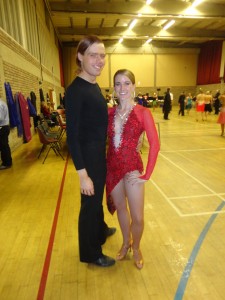 Yes, he is very tall.
Yes, he is very tall.
The next weekend, I headed off to Blackpool to compete at Nationals. There’s an unqualified section, so I danced both my ballroom and Latin. Surprisingly, I made it into both the ballroom and Latin finals.
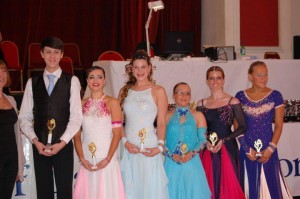
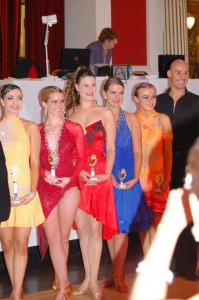
Yes, I came second in Latin…again. One of these years, I will win!
But, most excitedly, Dean and I won our Latin event.
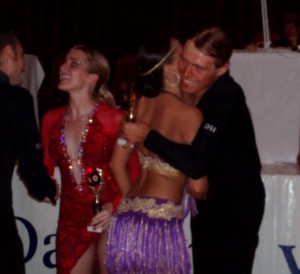
We were so pleased with that result, and it’s been the start of a successful partnership. We’re slowly working our way up on the university circuit scene, too.
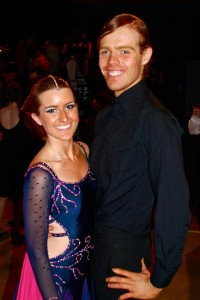
Our fantastic coach, Neil, has really been working us since our first university competition. We spent three hours on the first fifteen seconds of our cha cha routine. No, I’m not kidding. The dancing has been intense, but we’re starting to see some wonderful results. At the last competition (Warwick), Dean and I made it to the quarterfinals of ballroom (which Dean hates) and through the quarterfinals of Latin. Those results are really exciting since we’re up against some really talented couples.
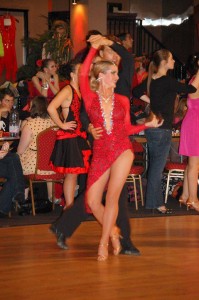
More importantly, the Oxford team looks very strong this year. Hopefully we’ll be able to keep our winning streak against Cambridge going this year.
Well, I’m off to get some sleep before spending all day in the Bodleian tomorrow. Since it’s the Christmas season, my friends and I are planning to do some traditional English Christmas events, which will definitely be a nice break from writing about Old Norse Literature.
Until next time!


